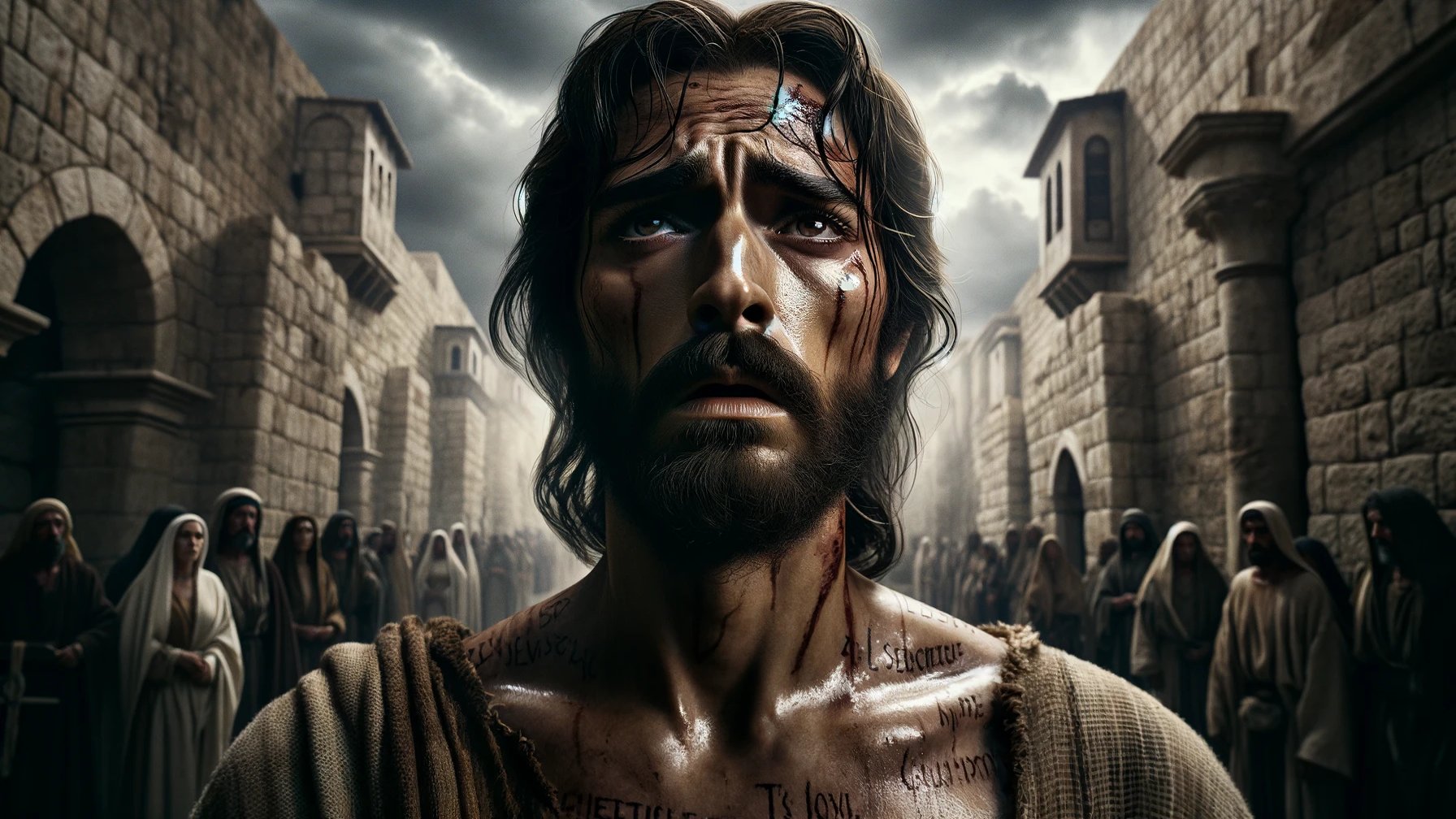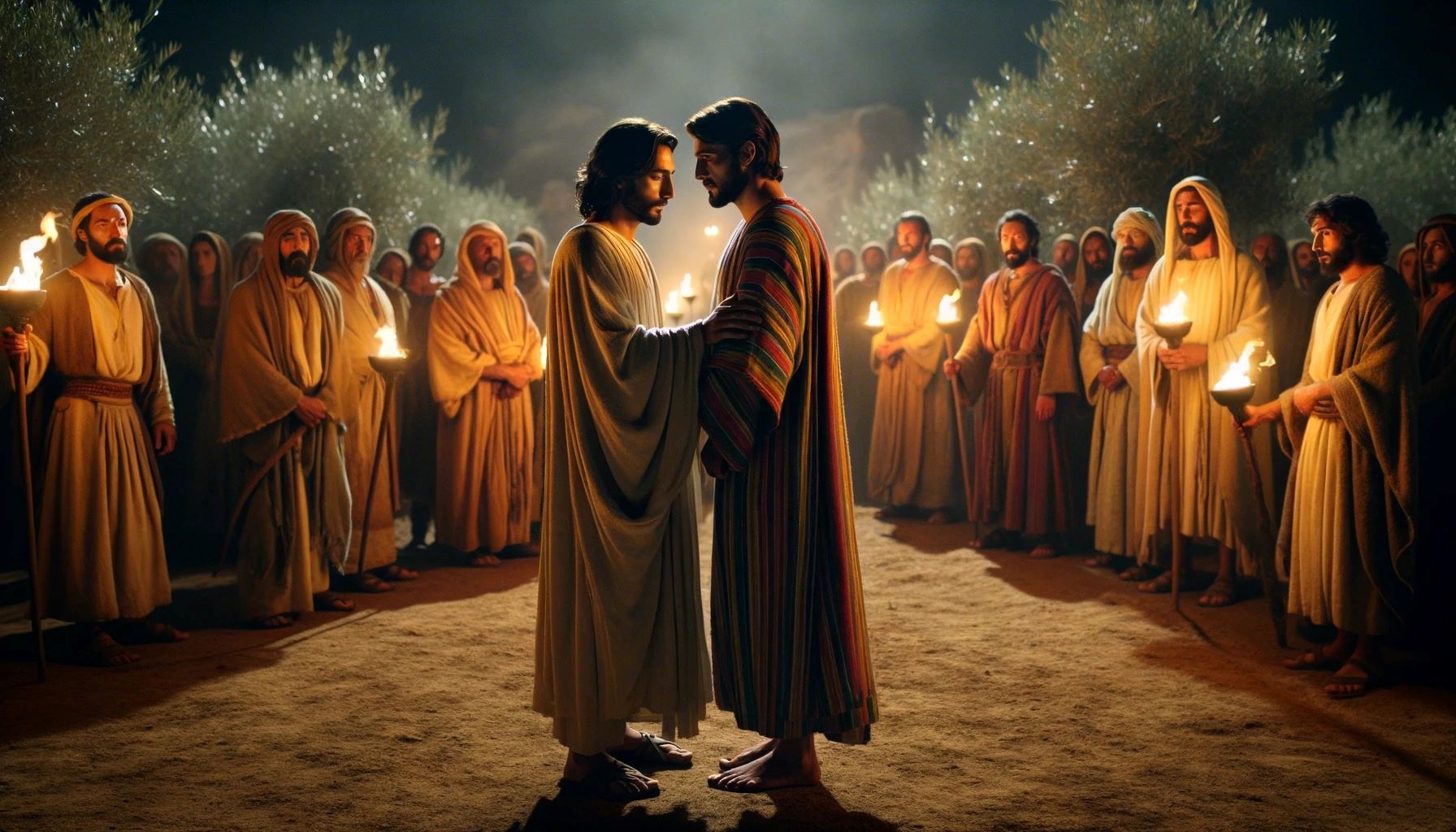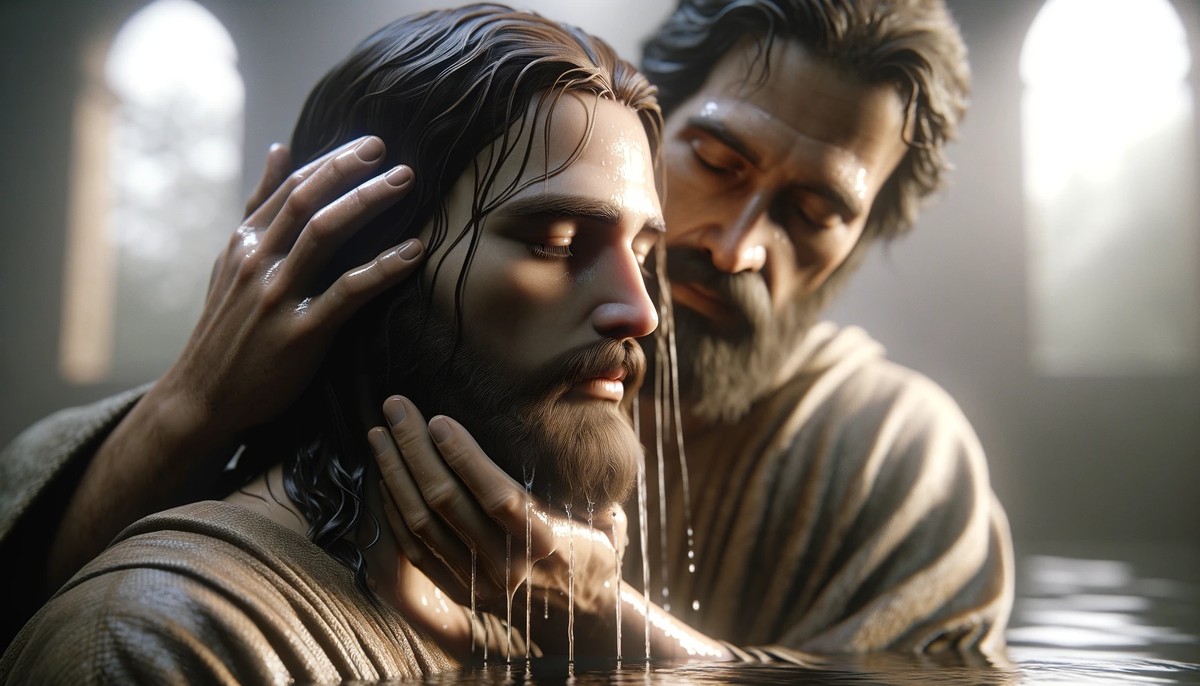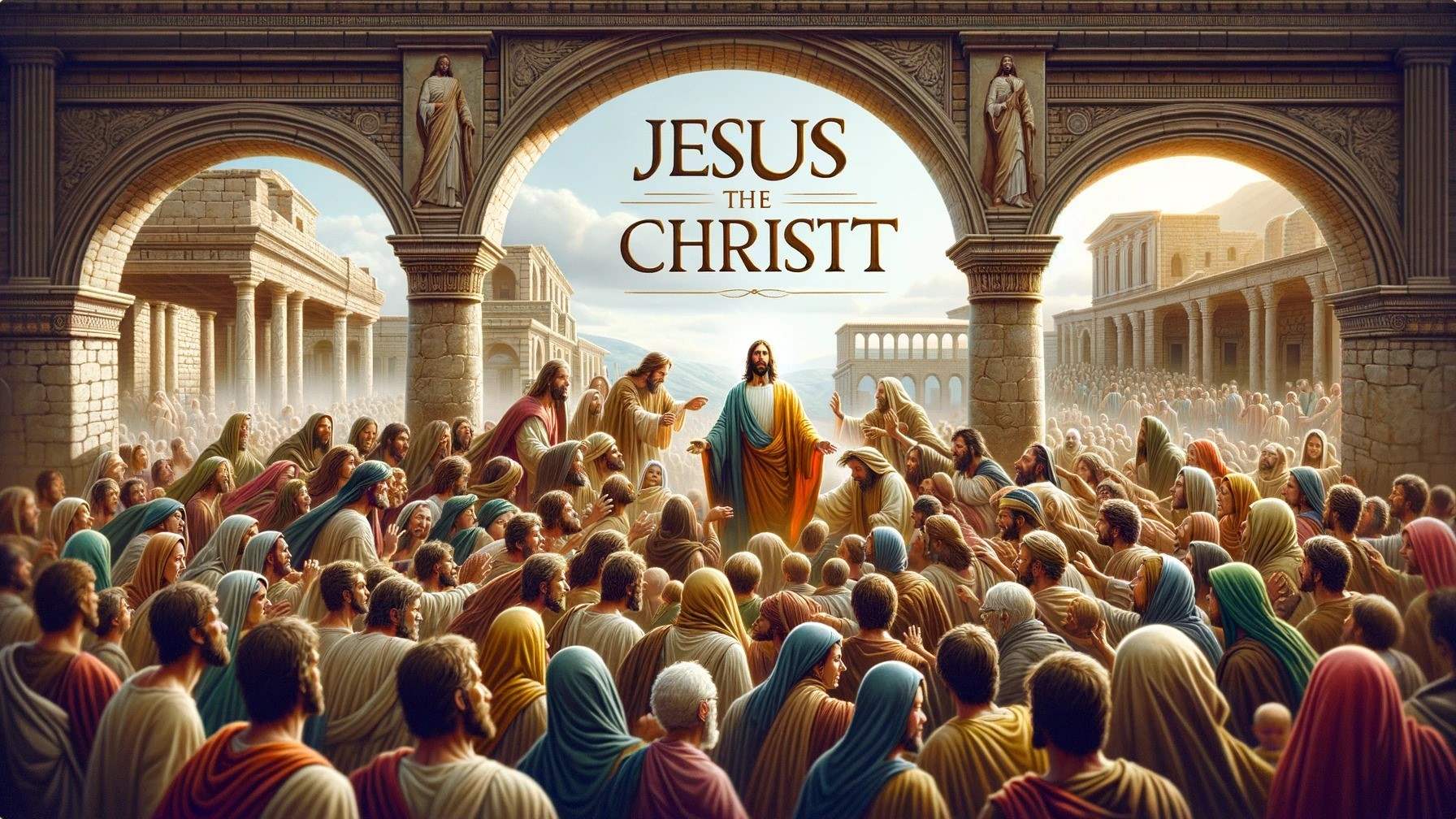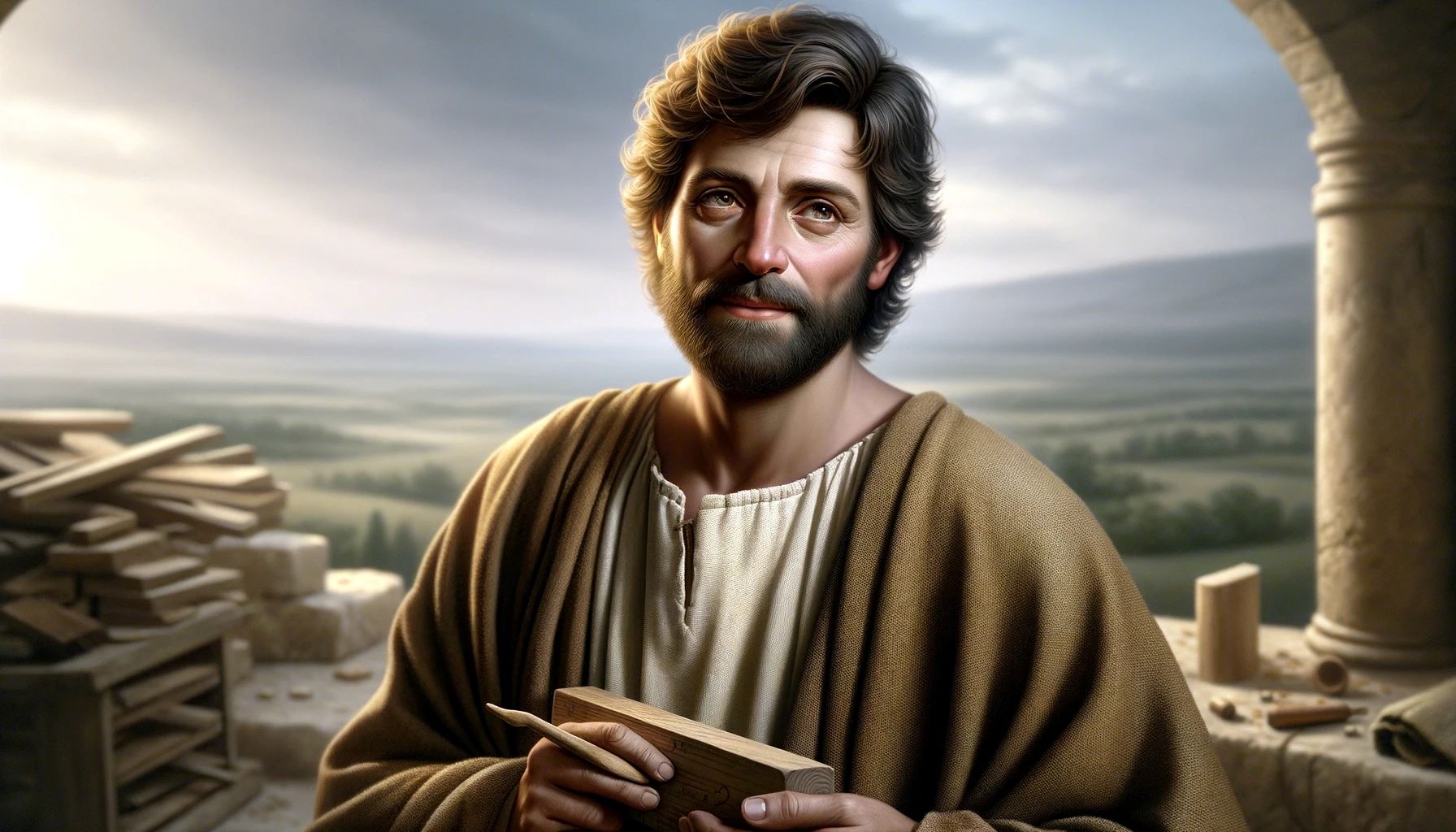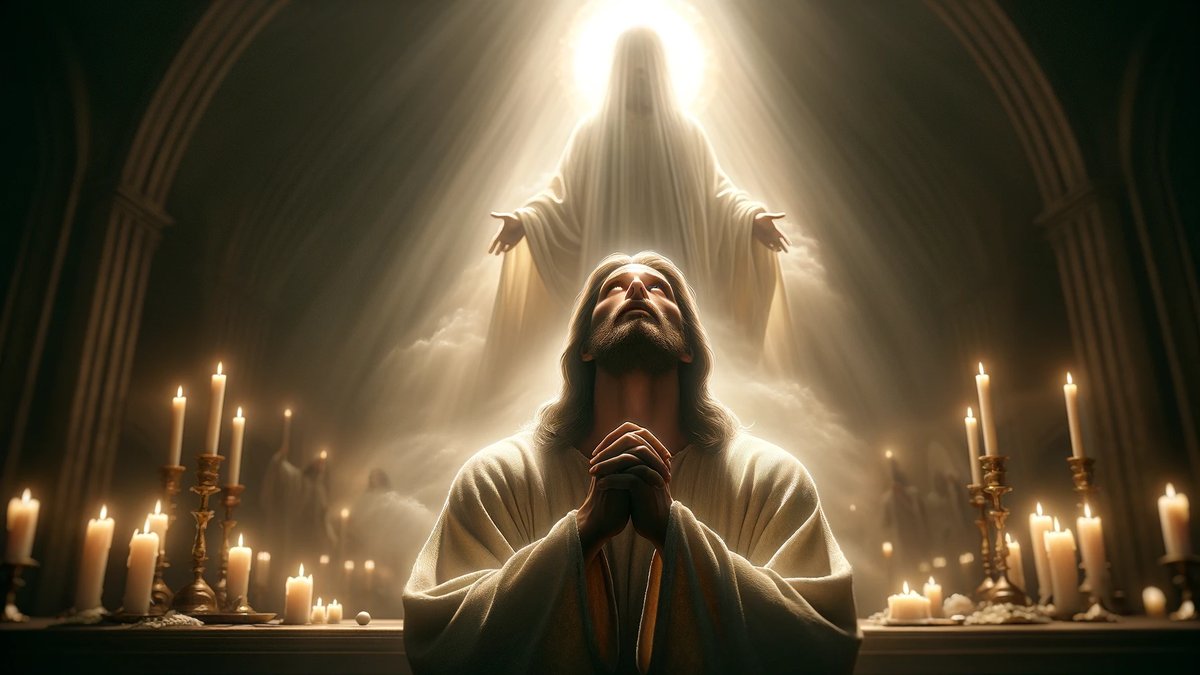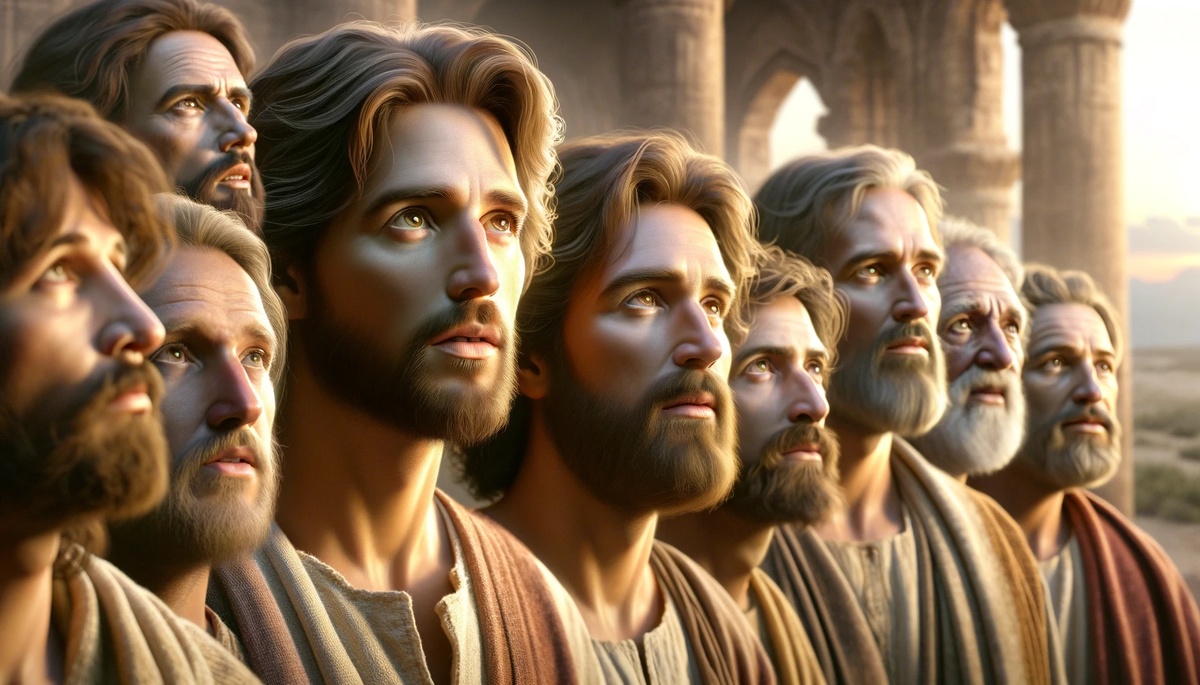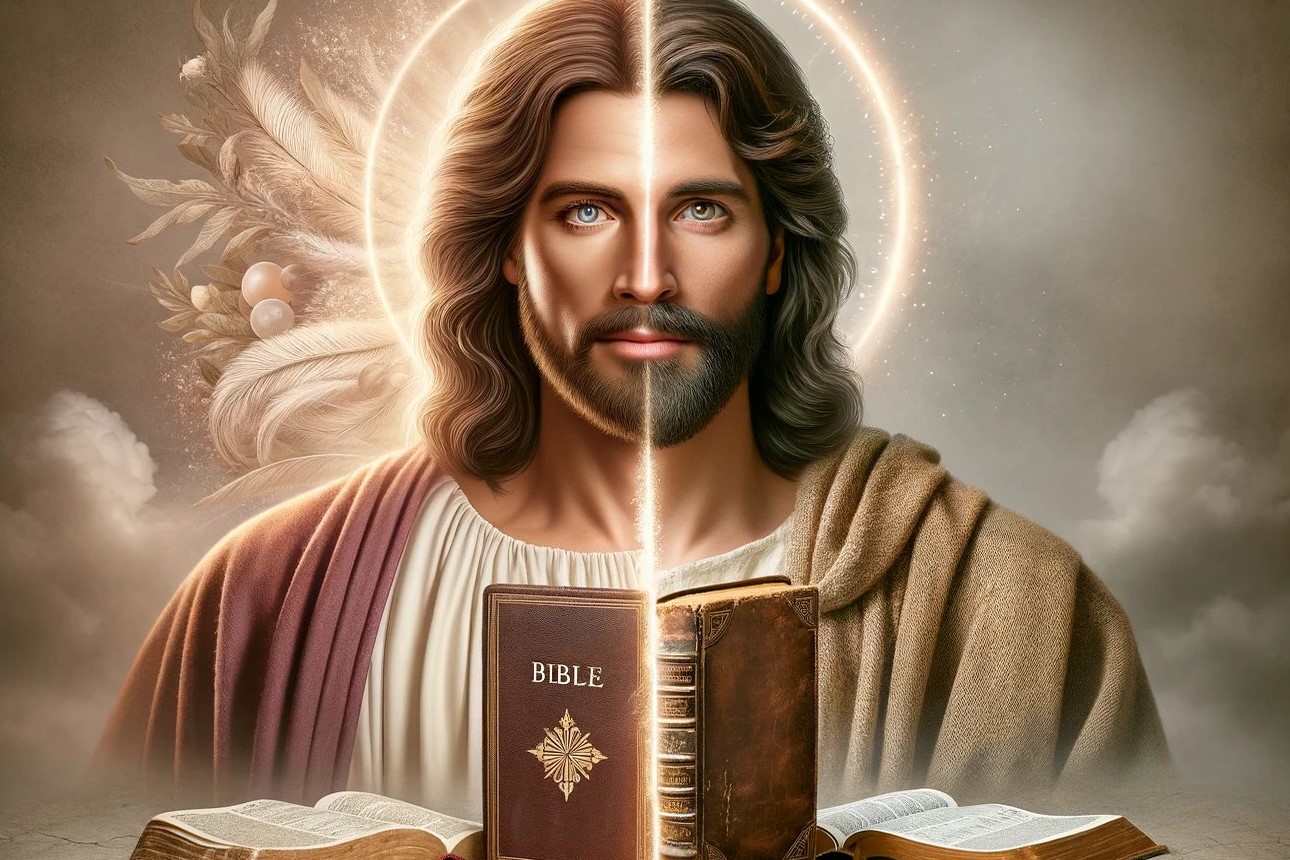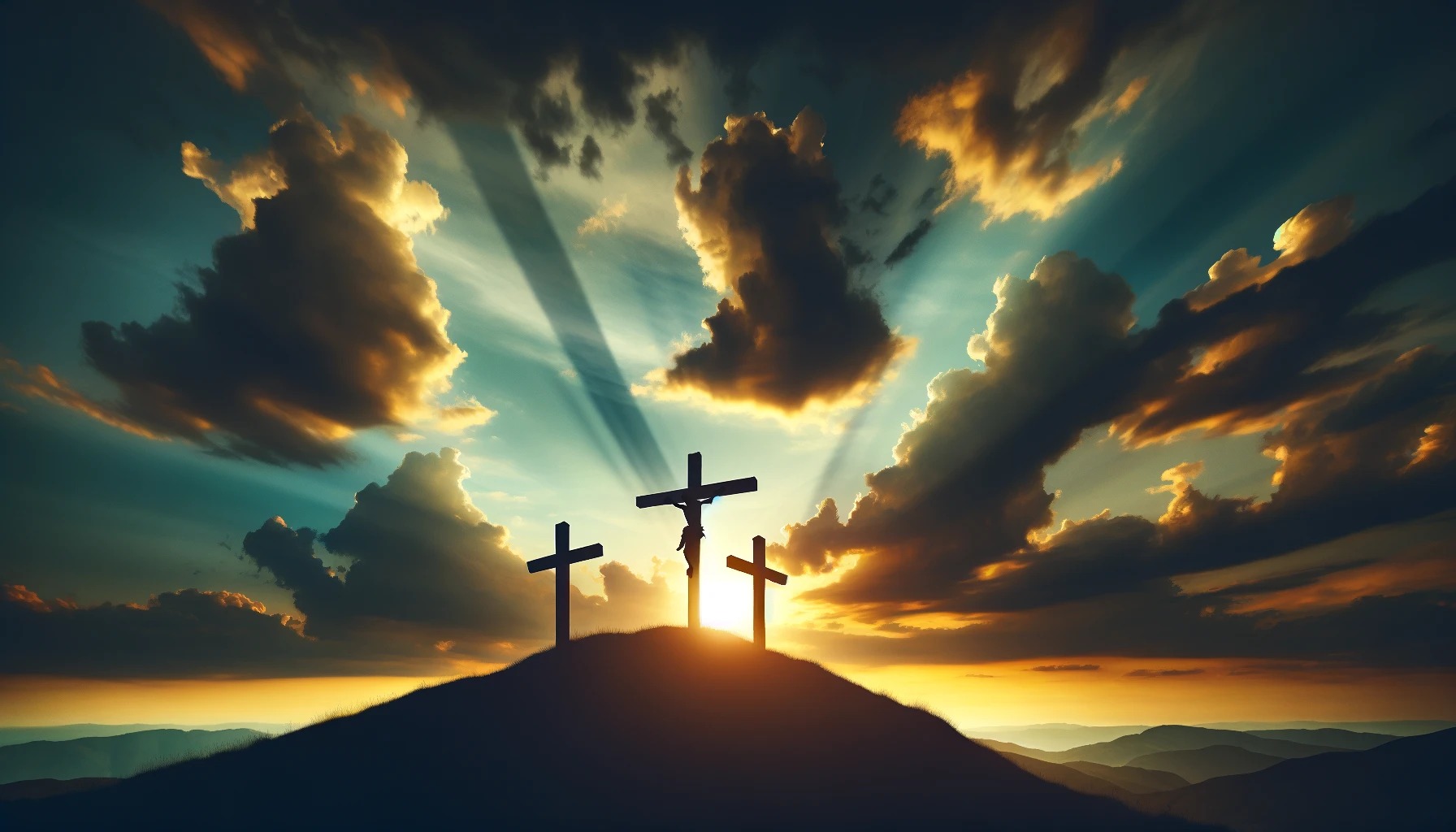Home>Christian Videos>Bible Stories>Who Was The Forerunner Of Jesus Christ
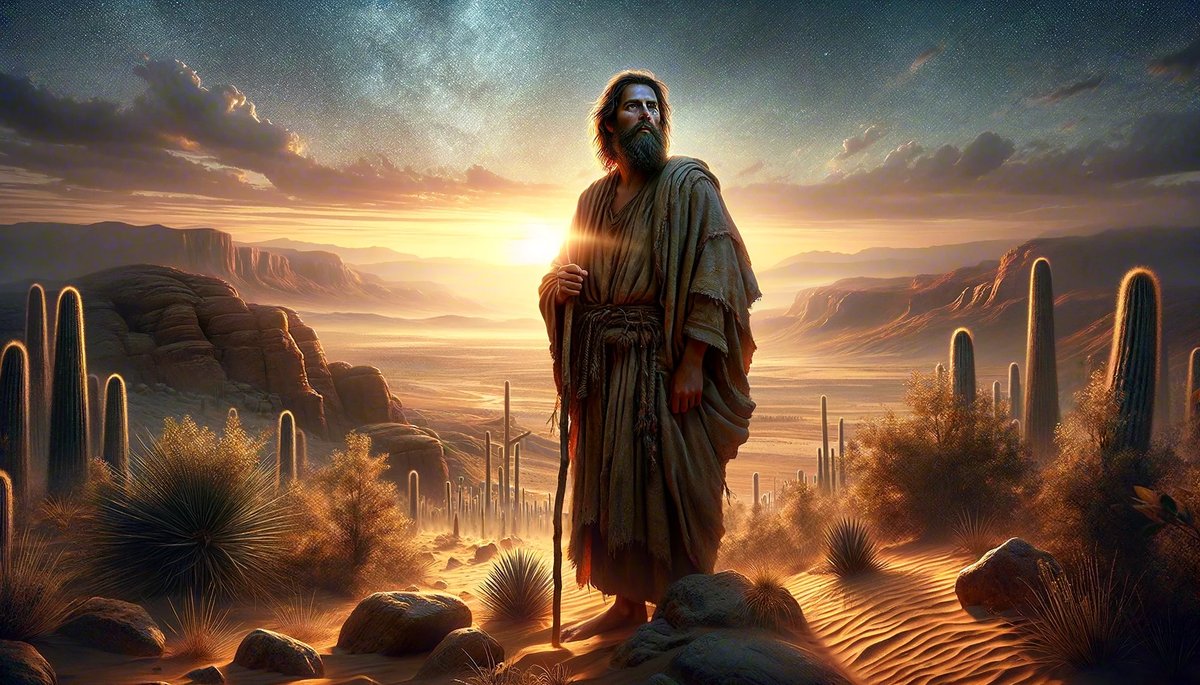

Bible Stories
Who Was The Forerunner Of Jesus Christ
Published: March 2, 2024
Jason DeRose, Managing Editor at Christian.net, uses his expertise in religion and journalism to deepen understanding of faith's societal impacts. His editorial leadership, coupled with a strong academic background, enriches the platform’s diverse content, earning him recognition in both journalism and religious circles.
Discover the intriguing story of the forerunner of Jesus Christ in the Bible. Uncover the significance of this pivotal figure in biblical history. Explore more Bible stories today!
(Many of the links in this article redirect to a specific reviewed product. Your purchase of these products through affiliate links helps to generate commission for Christian.net, at no extra cost. Learn more)
Table of Contents
Introduction
Who was the forerunner of Jesus Christ? The forerunner of Jesus Christ is a significant figure in religious history, often mentioned in the Bible and revered by many. This article will delve into the life, ministry, and legacy of the forerunner, shedding light on his pivotal role in preparing the way for the coming of Jesus Christ. Join us on this enlightening journey through the annals of history to uncover the profound impact of the forerunner on the religious landscape.
Read more: Who Is Jesus Christ’s Mother
The Prophecies of the Forerunner
-
Foretold in the Old Testament: The prophecies of the forerunner of Jesus Christ can be traced back to the Old Testament. In the book of Isaiah, it was prophesied that a voice would cry out in the wilderness, preparing the way for the Lord. This prophecy laid the groundwork for the arrival of the forerunner, signaling the imminent coming of the Messiah.
-
Messenger of the Covenant: The book of Malachi also foretold the coming of the forerunner, referring to him as the messenger who would prepare the way before the Lord. This prophecy emphasized the pivotal role of the forerunner in paving the path for the arrival of Jesus Christ, the central figure in Christianity.
-
Fulfillment in John the Baptist: These prophecies found their fulfillment in John the Baptist, who emerged as the forerunner of Jesus Christ. John's life and ministry aligned with the ancient prophecies, solidifying his position as the herald of the Messiah and validating the prophetic utterances of the Old Testament.
-
Significance of the Prophecies: The prophecies of the forerunner serve as a testament to the divine orchestration of events leading up to the arrival of Jesus Christ. They underscore the continuity of God's plan throughout history and highlight the meticulous fulfillment of ancient prophecies, reinforcing the spiritual significance of the forerunner in the narrative of Christianity.
The Birth and Early Life of the Forerunner
-
Divine Announcement: The birth of the forerunner, John the Baptist, was foretold by an angel to his father, Zechariah, while he was serving as a priest in the temple. The angel proclaimed that Zechariah's wife, Elizabeth, would conceive a son in her old age, and he would be named John. This divine announcement marked the miraculous beginning of the forerunner's life, setting the stage for his extraordinary destiny.
-
Miraculous Conception: Elizabeth, despite her advanced age, conceived as the angel had foretold. The miraculous nature of John's conception signified the divine intervention surrounding his birth, emphasizing his special role in the grand design of God's plan. This miraculous event also mirrored the miraculous conception of Jesus Christ, foreshadowing the intertwining destinies of the forerunner and the Messiah.
-
Childhood in Seclusion: John the Baptist spent his early years in seclusion, away from the public eye. His upbringing in the wilderness fostered a deep spiritual connection and a profound sense of purpose. This period of seclusion and spiritual nurturing prepared him for his future ministry as the forerunner of Jesus Christ, shaping his character and fortifying his resolve to fulfill his divine calling.
-
Preparation for Ministry: As John grew, he matured in wisdom and strength of spirit. His secluded upbringing equipped him with the spiritual fortitude and resilience necessary to undertake the monumental task of preparing the way for the coming of Jesus Christ. His formative years in seclusion laid the groundwork for his unwavering commitment to his divine mission, instilling in him the courage to challenge the status quo and herald the arrival of the Messiah.
-
Prophetic Identity: John's early life was imbued with a sense of prophetic identity, as he was destined to fulfill the ancient prophecies regarding the forerunner of the Messiah. His upbringing in seclusion and the divine circumstances surrounding his birth underscored the sacred nature of his calling, shaping him into a formidable figure destined to herald the dawn of a new era in the religious landscape.
The birth and early life of the forerunner, John the Baptist, were marked by divine intervention, miraculous events, and a sense of prophetic destiny. These formative experiences laid the foundation for his pivotal role in preparing the way for the arrival of Jesus Christ, shaping him into a figure of profound spiritual significance.
The Ministry of the Forerunner
-
Proclamation of Repentance: John the Baptist embarked on his ministry with a resounding call for repentance. He preached a message of spiritual renewal and called upon the people to turn away from their sins, symbolically cleansing themselves in preparation for the arrival of the Messiah. His impassioned plea for repentance resonated deeply with the masses, igniting a fervor for spiritual transformation and paving the way for the transformative impact of Jesus Christ's ministry.
-
Baptism of Repentance: Central to John's ministry was the ritual of baptism, symbolizing purification and spiritual rebirth. He baptized multitudes in the Jordan River, immersing them in water as a tangible expression of their commitment to repentance and spiritual renewal. The act of baptism served as a powerful symbol of cleansing and preparation, signifying the readiness of the people to receive the message and ministry of Jesus Christ.
-
Prophetic Foretelling: John the Baptist fearlessly proclaimed the imminent arrival of the Messiah, foretelling the coming of Jesus Christ with unwavering conviction. His prophetic declarations stirred anticipation and fervent expectation among the people, creating an atmosphere of heightened spiritual awareness and readiness for the advent of the long-awaited Savior. Through his prophetic utterances, John kindled a sense of divine anticipation, preparing the hearts and minds of the people for the profound impact of Jesus' ministry.
-
Challenging Religious Authorities: In his ministry, John fearlessly confronted the religious authorities of his time, challenging their hypocrisy and calling for genuine spiritual transformation. His uncompromising stance against religious complacency and moral decadence served as a catalyst for introspection and reform within the religious establishment, setting the stage for the radical teachings of Jesus Christ and the transformative power of his message.
-
Recognition of the Messiah: John the Baptist played a pivotal role in recognizing and affirming the identity of Jesus Christ as the long-awaited Messiah. His proclamation of Jesus as the Lamb of God and the fulfillment of ancient prophecies solidified the divine mission of Jesus, establishing a seamless transition from the ministry of the forerunner to the profound impact of the Messiah's teachings and redemptive work.
-
Spiritual Awakening: Through his ministry, John the Baptist sparked a widespread spiritual awakening, stirring the hearts of the people and igniting a fervent anticipation for the arrival of the Messiah. His compelling message of repentance, coupled with the symbolic act of baptism, catalyzed a profound spiritual revival, laying the groundwork for the transformative ministry of Jesus Christ and the enduring legacy of Christianity.
The ministry of the forerunner, John the Baptist, was characterized by a fervent call for repentance, prophetic foretelling, and unwavering recognition of the Messiah. His profound impact on the religious landscape set the stage for the transformative ministry of Jesus Christ, shaping the course of history and leaving an indelible mark on the spiritual consciousness of humanity.
The Relationship Between Jesus and the Forerunner
-
Prophetic Connection: The relationship between Jesus and the forerunner, John the Baptist, was rooted in a profound prophetic connection. John's birth and ministry were intricately linked to the fulfillment of ancient prophecies regarding the coming of the Messiah. His role as the herald of Jesus Christ established a spiritual bond that transcended earthly ties, underscoring the divine orchestration of their intertwined destinies.
-
Baptism and Anointing: The pivotal moment of their relationship unfolded during the baptism of Jesus by John in the Jordan River. This sacred encounter symbolized the anointing of Jesus for his earthly ministry and marked the public affirmation of his divine identity. The baptism served as a transformative juncture, solidifying the spiritual bond between the forerunner and the Messiah, and signaling the commencement of Jesus' redemptive mission.
-
Recognition and Affirmation: John the Baptist played a crucial role in recognizing and affirming the identity of Jesus as the long-awaited Messiah. His proclamation of Jesus as the Lamb of God and the fulfillment of ancient prophecies underscored the profound spiritual insight and divine revelation that characterized their relationship. John's unwavering conviction in Jesus' divine mission laid the groundwork for the unfolding of the redemptive narrative.
-
Spiritual Continuity: The relationship between Jesus and the forerunner exemplified a seamless continuity of divine purpose and spiritual legacy. John's ministry prepared the hearts and minds of the people for the transformative impact of Jesus' teachings, establishing a spiritual continuum that transcended individual lifetimes. Their interconnected roles in the grand narrative of salvation underscored the timeless significance of their relationship in the annals of religious history.
-
Sacrificial Witness: The relationship between Jesus and the forerunner culminated in the ultimate act of sacrificial witness. John the Baptist fearlessly confronted the moral decadence of his time, ultimately facing persecution and martyrdom for his unwavering commitment to truth. His sacrificial witness mirrored the redemptive sacrifice of Jesus Christ, embodying the profound depth of their interconnected destinies and the enduring impact of their relationship on the fabric of faith.
-
Eternal Reverberations: The relationship between Jesus and the forerunner reverberates throughout the tapestry of Christian theology, serving as a testament to the divine interplay of human agency and transcendent purpose. Their intertwined destinies and profound spiritual connection continue to inspire reverence and contemplation, illuminating the enduring significance of their relationship in shaping the course of religious consciousness and spiritual devotion.
The relationship between Jesus and the forerunner, John the Baptist, transcended earthly interactions, embodying a profound spiritual connection that reverberates through the corridors of religious history. Their intertwined destinies and transformative encounters underscore the timeless significance of their relationship in the narrative of Christianity.
Read more: Who Were Jesus Christ’s Siblings
The Death of the Forerunner
-
Imprisonment and Persecution: Following his unwavering proclamation against the moral decadence of the ruling authorities, John the Baptist faced persecution and was subsequently imprisoned. His unyielding commitment to truth and righteousness incurred the wrath of those in power, leading to his unjust incarceration.
-
Martyrdom for Truth: Despite his imprisonment, John remained resolute in his convictions, refusing to compromise his principles for the sake of personal safety. His steadfast adherence to truth and justice ultimately led to his martyrdom, as he became a victim of political intrigue and the vengeful machinations of the ruling elite.
-
Tragic End of a Prophet: The death of the forerunner, John the Baptist, marked the tragic end of a prophet whose life was dedicated to preparing the way for the coming of Jesus Christ. His martyrdom underscored the immense personal sacrifice he made in upholding the divine truth and serving as a fearless herald of spiritual renewal.
-
Legacy of Courage and Conviction: John's death left an indelible mark on the religious consciousness, serving as a testament to the enduring legacy of courage and conviction in the face of adversity. His martyrdom exemplified the profound depth of his commitment to truth, inspiring future generations with the enduring power of unwavering faith and sacrificial witness.
-
Spiritual Continuity: The death of the forerunner, while a tragic event, symbolized a seamless continuity of divine purpose and spiritual legacy. His sacrificial witness echoed the redemptive narrative of Jesus Christ, embodying the timeless significance of his role in the grand tapestry of religious history.
-
Eternal Reverberations: The death of the forerunner reverberates through the corridors of religious consciousness, serving as a poignant reminder of the enduring impact of martyrdom and the unwavering commitment to truth. John's ultimate sacrifice continues to inspire reverence and contemplation, illuminating the timeless significance of his martyrdom in shaping the course of religious devotion and spiritual consciousness.
The Legacy of the Forerunner
-
Spiritual Precursor: The forerunner, John the Baptist, left behind a profound legacy as the spiritual precursor to Jesus Christ. His unwavering commitment to preparing the way for the Messiah established a timeless legacy of spiritual anticipation and readiness, underscoring the pivotal role of the forerunner in heralding the dawn of a new era in religious consciousness.
-
Prophetic Fulfillment: John the Baptist's life and ministry embodied the fulfillment of ancient prophecies, solidifying his legacy as the embodiment of divine prophecy. His alignment with the prophetic utterances of the Old Testament underscored the enduring significance of his role in the grand narrative of religious history, leaving an indelible mark on the spiritual consciousness of humanity.
-
Transformative Ministry: The legacy of the forerunner resonates through the transformative ministry of Jesus Christ, serving as a testament to the seamless continuity of divine purpose. John's unwavering proclamation and recognition of Jesus as the Messiah laid the groundwork for the profound impact of Jesus' teachings and redemptive work, illuminating the enduring legacy of their interconnected destinies.
-
Sacrificial Witness: John the Baptist's martyrdom epitomized the legacy of sacrificial witness and unwavering commitment to truth. His ultimate sacrifice left an indelible mark on the religious consciousness, inspiring future generations with the enduring power of unwavering faith and sacrificial witness, perpetuating the legacy of courage and conviction in the face of adversity.
-
Eternal Reverberations: The legacy of the forerunner reverberates through the corridors of religious consciousness, serving as a poignant reminder of the enduring impact of martyrdom and the unwavering commitment to truth. John's ultimate sacrifice continues to inspire reverence and contemplation, illuminating the timeless significance of his martyrdom in shaping the course of religious devotion and spiritual consciousness.
The legacy of the forerunner, John the Baptist, embodies a profound spiritual precursor, prophetic fulfillment, and sacrificial witness, leaving an enduring mark on the religious landscape and perpetuating the timeless significance of his role in the narrative of Christianity.

